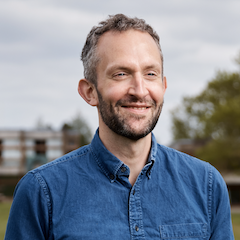Antimicrobial Resistance in Bacterial Pathogens - Asia
2–7 February 2025
Bangkok, Thailand
Learn antimicrobial susceptibility testing techniques and how whole-genome sequencing and bioinformatics can be used to understand AMR
Summary
Antimicrobial resistance (AMR) is a global public health emergency and threatens the safe delivery of modern medical care. A recent study estimated that there were 4.95 million deaths associated with AMR bacterial infections in 2019. Global projections of the negative impact of AMR predict the loss of nearly 10 million lives per year, and a cumulative loss of global production up to 100 trillion US dollars by 2050. AMR requires immediate, concerted, international, collaborative action to monitor its prevalence and spread throughout the world.
The importance of this has been recognised both by the United Nations, and by the World Health Organisation; the latter has published a list of priority pathogens and a global strategy for AMR surveillance.
In collaboration with the Faculty of Tropical Medicine (FTM) and the Mahidol-Oxford Tropical Medicine Research Unit (MORU), Mahidol University, Thailand, we are pleased to announce the 2025 Global Training course in Antimicrobial Resistance of Bacterial Pathogens. This course aims to address regionally specific AMR-associated challenges through knowledge transfer and skills development by global experts.
What will this course cover?
This week-long course will include an introduction to AMR with hands-on laboratory practicals for AMR detection through molecular and phenotypic testing. This will be accompanied by theoretical training on the evolution and spread of AMR and utilisation of whole-genome sequencing and bioinformatics analysis in methods for AMR surveillance and control. Additionally, participants will have the opportunity to network and potentially build a regional AMR network to support longer-term partnerships and collaborations.
Who should attend this course?
This course is open to applicants based in Asia only, who are actively engaged in, or soon to commence related research or work. This may include diagnostic stewardship, antimicrobial stewardship, infection prevention and control, or generate policies related to AMR in bacteria. Applicants should be PhD students, clinical trainees, or specialists in medical microbiology or bioinformatics, postdoctoral scientists, senior technicians, or research assistants with a Master’s degree.
Learning outcomes
What will you achieve?
After completing this course, you will be able to:
- Carry out standard laboratory methods for antimicrobial susceptibility testing (e.g. disk testing and MIC determination)
- Describe the principles and practice of quality assurance and control in AMR surveillance techniques, antimicrobial susceptibility testing and reporting.
- Discuss the range of control strategies for AMR in human and veterinary medicine (e.g. antimicrobial stewardship, infection control and policies).
- Use appropriate software tools to analyse WGS data for assembly of bacterial genomes, detect resistant variants and conduct phylogenetic analysis.
- Analyse and interpret genomics data for AMR surveillance.
Programme
The course will consist of a series of lectures and hands-on laboratory and computational practicals. Participants will learn standard international methods for the detection of antimicrobial resistance in bacteria. They will also complete computational practicals covering the investigation, tracking and understanding AMR in bacteria.
Topics will include:
- Epidemiology of AMR pathogens and national surveillance programmes
- Clinical importance of AMR
- Causes and biological mechanisms of resistance in Gram-positive and Gram-negative bacteria
- Antimicrobial susceptibility testing (AST) methods e.g. disc testing, automated systems, minimum inhibitory concentration (MIC), breakpoints and reporting, QC/QA
- Antibiotic policies and stewardship
- Tackling AMR using a One Health Approach
- Whole genome sequencing (WGS)
- Web-based and command line tools for pathogen genomics analysis
- Genomic surveillance of AMR
Trainers
Organisers

Beth Blane
University of Cambridge

Ewan Harrison
Wellcome Sanger Institute

Direk Limmathurotsakul
Mahidol-Oxford Tropical Medicine Research Unit
Training team
Pakorn Aiewsakun
Mahidol University
Premjit Amornchai
Mahidol-Oxford Tropical Medicine Research Unit
Elizabeth Batty
Oxford Global Health, University of Oxford
Francesc Coll I Cerezo
Instituto de Biomedicina de Valencia
Arun Decano
University of Oxford
Fahad Khokhar
University of Cambridge
Janjira Thaipadungpanit
Mahidol-Oxford Tropical Medicine Research Unit
Polly Yap
Monash University
Registration and bursaries
Pre-requisites:
Laboratory experience: The laboratory practical sessions will require basic microbiological and laboratory skills. This will be essential for participants to fully benefit from the course.
Computer Proficiency: Bioinformatic training will include the use of Linux/UNIX command line. Though participants learn to use the command line during the course, familiarity with these resources is recommended. ‘Introduction to Linux for biologists’ pre-course module will be provided for completion prior to the course.
This course will be taught in English.
How to apply
- Start the application
- Click on the “Apply” button above to start your application. Please note that places are limited and will be awarded based on merit.
- Demonstrate the course’s relevance to your project/role
- Our courses are highly subscribed, so it is essential to clearly show how the skills you will learn in the course will be directly applicable and beneficial to your current role/project and how do you plan to disseminate the knowledge after the course.
- Preference will be given to applicants who are currently working on related projects or soon will be.
- Letter of recommendation
- Applications must be supported by a recommendation from a scientific or clinical sponsor (e.g., supervisor, line manager, or head of department). Ensure that your sponsor provides a tailored supporting statement by the application deadline. This statement must be uploaded as a PDF document to the registration system within your application. Applications without a supporting statement will not be considered.
- Need help?
- If you encounter any problems with the online application process, please contact us globaltraining@wellcomeconnectingscience.org for assistance.
Application deadline: 29 October 2024
Travel visas
Citizens of many countries can travel to Thailand to attend a course or conference without needing a visa. Please check the Thai Embassy website for more information
Confirmed attendees requiring a letter to support a visa application should contact us in the first instance.
Financial assistance
Cost
This is a free course open to applicants in Asia only and funded by the Wellcome Trust
Bursaries
Bursaries are offered based on merit to assist with accommodation, travel, and living expenses during the course. To apply, please complete the “bursary” section on the course application form. Recipients will typically be informed of their award in conjunction with their course acceptance.
Accommodation services phishing scam – please be vigilant. More information.
Sponsors
If you are interested in supporting this meeting, please contact the conference organiser.
Testimonials
Delegate feedback from the 2023 course:
“Training on all aspects of AMR, covering fundamental knowledge, wet and computational
laboratory hands-on sessions, together with application of everything we have learned towards designing surveillance studies, AMS and IPC was provided during the course. I was only expecting to learn wet and computational laboratory hands-on techniques during the course, so the actual course content exceeded my expectations.”
“The AMR course conducted by WCS at Thailand from Feb 19-24, 2023 was really a great experience for me. The wet laboratory and bioinformatics sessions were planned in a well-organized and the trainers were very friendly and cleared my doubts too. The entire experience at Thailand was fabulous.”
“I would like take this opportunity to express my sincere thanks and high appreciation to WCS for giving me to participate the course. It is such a valuable experience for me. I hope that I would be able to join WCS courses or have a chance to work together with WCS team in the future. Thank you so much!”

